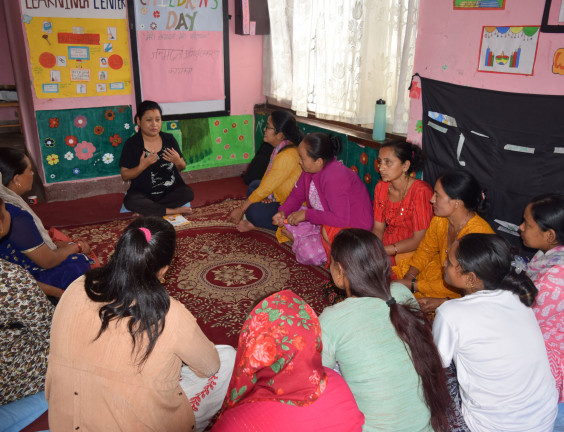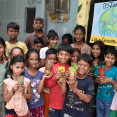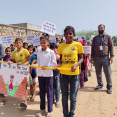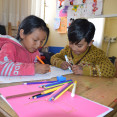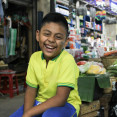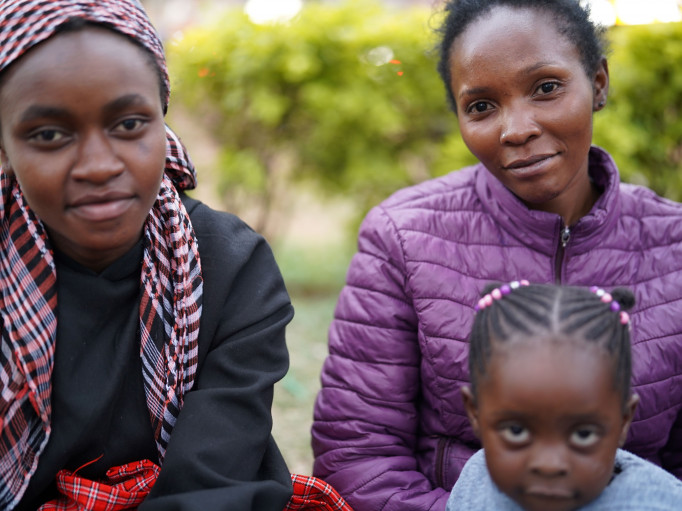
This International Women's Day, Toybox's Programme Manager for Africa and Asia, Smita Khanijow, reflects on the ongoing efforts within Toybox-supported projects to empower girls and promote gender equality.
A time to reflect
"Observed globally on Saturday 8th March, International Women’s Day is a time to celebrate the achievements of women and girls while advocating for lasting gender equality. For me, it’s also a moment of reflection — assessing the progress made and identifying the next steps toward advancing women's and girls' rights. This year’s theme, ‘Accelerate Action,’ highlights the urgency of taking bold, tangible steps to achieve real and lasting gender equality.
Breaking the cycle of abuse in Nairobi
At Toybox, we work with children and young people in street situations. In our projects we often notice how slow the progress on gender equality is. We also observe that the violence faced by young girls and women on the streets often goes unreported and undocumented.
Abena, who lives on the streets of Nairobi, fled her home to escape an abusive partner. With no means to support herself and her children, she took a job as a domestic worker in a nearby apartment building. However, her employer treats her unfairly — she is paid in kind and faces physical abuse if she refuses to work.
Toybox's local partner Pendekezo Letu in Nairobi is working with young parents and caregivers like Abena and uniting them into savings groups so that they can become economically empowered. Pendekezo Letu also organises life skills and workshops to improve awareness in communities so that they can break away from vicious cycles of abuse.
Pictured below: Women in Nairobi attending a table banking lecture, gaining financial skills to strengthen their savings groups and achieve economic empowerment.


Tackling challenges in Addis Ababa
Young girls without a parent, caregiver, or safe shelter are highly vulnerable to harassment and sexual violence. In Addis a project implemented by our local partner, CHADET, reveals that children in street situations — especially girls — face multiple challenges, including lack of shelter, healthcare, education and nutrition. Toybox is working alongside CHADET to provide access to non-formal education and safe sanitation for these children. Alarmingly, nearly 30% of children in the project lack shelter and sanitation support, with evidence showing that adolescent girls are disproportionately affected.
Pictured below: Two young project participants at the Toybox-supported education project in Addis Ababa.

Dispelling myths and raising awareness in Jaipur and Delhi
During a community meeting in Jaipur, a parent raised concerns about the lack of toilet facilities at her daughter’s school. With no toilets on the premises, the young girl was forced to leave school midway each day. The mother feared for her daughter’s safety as she traveled home alone, facing regular harassment from boys, and was considering pulling her out of school entirely.
Across India, 1.17 million children are out of school, with Rajasthan having one of the highest dropout rates for girls. Interestingly, around 13% of school toilets in Rajasthan are non-functional. The situation in Delhi, the nation’s capital, is no different, with nearly 16% of schools lacking functional toilets.
Beyond poor infrastructure, deep-rooted social myths — such as restricting menstruating girls from interacting with others — further hinder education for girls in street situations. Toybox, in collaboration with our local partner CHETNA, is working to challenge these stigmas and raise awareness about the importance of educating adolescent girls.
Pictured below: Tackling taboos - Toybox's partner CHETNA delivering a session on menstraul health and hygiene.
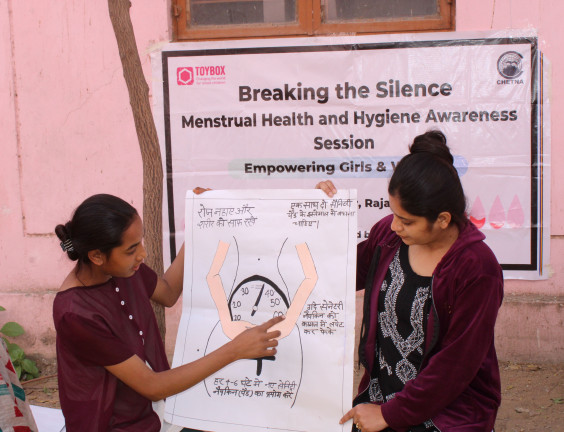
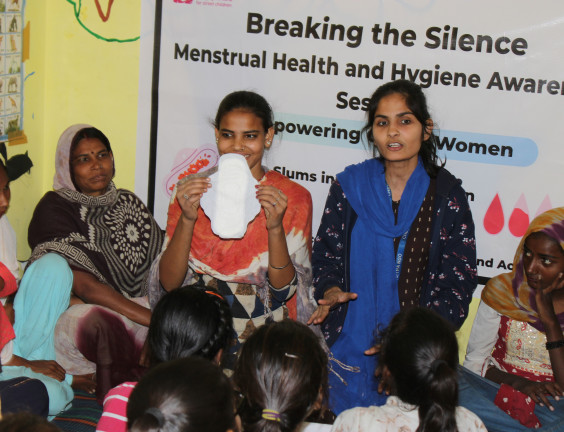
Supporting girls to secure their right to identity in Kathmandu
The situation for girls and women on the streets in Kathnmandu is very similar. Many girls and women engage in informal work and earn meagre wages. They are unable to negotiate for better work conditions or wages due to a lack of proper documentation.
15 year old Rajlaxmi works at a flower stall outside the Pushupati temple complex in Kathmandu. She is a survivor of abuse and violence faced on the streets and wants to become a teacher. She is a second-generation street child and has no identity documents. Toybox is working with our local partner SathSath to support girls in street situations like Rajlaxmi to get their birth certificates so that they can fulfil their dreams and live away from the streets.
Accelerating action
The World Economic Forum’s Global Gender Gap Report 2024 reads that it will take 134 years to reach gender parity. These stories and reports from my field truly reflect how far we have come, but how much more still needs to be done. Here at Toybox we are geared up to work even harder to ‘Accelerate Action’ and champion inclusive and transformative changes so that no one is left behind."
Pictured below: (L) SathSath run a session for parents and caregivers on the importance of birth registration. (R)Smita Khanijow Toybox Programme Manager for Africa and Asia.
